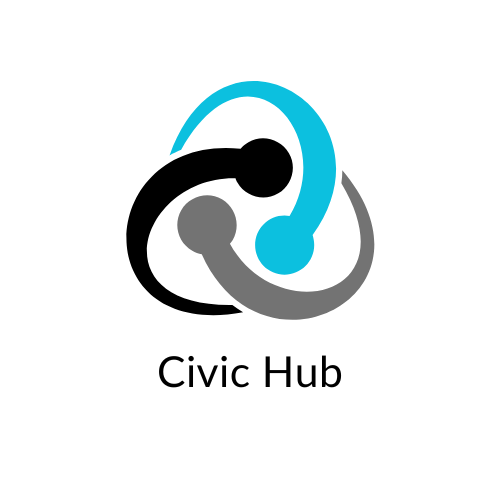A Case for Comprehensive Nonpartisan Citizen Election Observation in the US
The credibility of elections in the United States has been challenged in recent years. Allegations of widespread fraud that can undermine the credibility of the electoral process are used as a pretext to change voting requirements or dispute the results for partisan gain. Having observed elections overseas, I have witnessed firsthand how such allegations can be detrimental. My own experience, global best practices, and public surveys in the US indicate that the introduction of a more comprehensive nonpartisan observation of elections in the US would have a significant positive impact on public trust in elections.
While partisan poll watchers affiliated with a political party or candidate are looking out for their party or candidate’s interests, nonpartisan citizen election observers gather data about an election to determine whether it was credible and fair. Such an observation needs to be grounded in facts and evidence and conducted in an impartial and objective manner by trained observers who can help validate the work of election officials in important ways. Further, it has the potential to determine whether the election was peaceful and help prevent violence by confirming that the elections followed the law and by exposing the scope of any irregularities.
Based on my experience, comprehensive and effective nonpartisan observation requires several things. First, it must be permitted in all jurisdictions. Second, observers, whether long-term or short-term, cannot be party advocates and need to be willing and able to stay impartial. Finally, the observation effort must be extensive, with an observation scope broad enough to collect and analyze sufficient data into an observer report and using a methodology that accounts for the idiosyncrasies of the electoral jurisdictions in each state.
In the United States, partisan poll watchers are widely allowed, but not all states provide or allow for nonpartisan, neutral observers, and many do not provide for international observers which can add a layer of neutrality as they are not politically affiliated with political parties or candidates in the US. It is crucial that all states have a legal framework in place that also provides procedures for accrediting and deploying nonpartisan observers. According to the Movement Advancement Project, 38 states and the District of Columbia allow for some form of domestic, nonpartisan observation. However, such observation may be limited to being outside the polling station or to a certain polling location or time, preventing observers from fulfilling their key role.
When identifying nonpartisan, neutral observers, steps must be taken to ensure that they leave their partisan views at the door. I find it to be an important best practice to have each observer agree with and sign a code of conduct, and to train them prior to deployment. Along with the legal background and an overview of the political landscape, such training orients them to their roles and responsibilities, the voting process in the jurisdiction they will be observing, how to observe, and how to collect and report their findings.
It is common international practice to distinguish between long-term and short-term observers, as well as between domestic and international observers. Whether domestic or international, long-term observers, which also includes the core team of observers, focus on the pre-election developments and the broader electoral context—analyzing the political, legal, and procedural context leading up to the election, and on preparing training materials and logistics for short-term observers. Short-term observers, typically a larger cohort than long-term observers, concentrate on what happens during the election, such as early voting, Election Day polling, and the vote count and results announcement or even certification. While international observers are more challenging to recruit due to travel and deployment logistics, language or knowledge of local context, and related costs, they are often seen as more neutral and tend to be deployed in complex political situations where domestic observers may be perceived as biased even when they act in an impartial manner.
Observers are typically deployed in small observation teams. Often, observer teams are unable to cover all the polling stations at the same time. In such cases, they visit multiple polling stations in each electoral jurisdiction. It is important to maximize coverage and avoid overlapping by ensuring that the teams have a deployment strategy that enables them to cover the desired number of polling stations.
Each observer team collects data on a standardized form based on questions about the electoral process, to which they can add general observations or anything noteworthy. I find real time reporting using appropriate technology a particularly useful observation practice for identifying issues in a timely manner. Observer findings feed into the analysis typically performed by a core group of observers which analyzes individual observers’ findings. These findings are then used to make broader, well-informed conclusions which are issued in occasional statements and the final report with recommendations. To maintain consistency and messaging, no individual observer or team should be allowed to make or issue statements or conclusions based on one or even a smaller, unrepresentative number of observer reports which may reflect isolated developments or incidents.
It is another best practice and extremely important that observation efforts are comprehensive. By organizing nonpartisan citizen election observation in a numerically and demographically relevant sample, findings reported by each state can be compared and contrasted to identify strengths and weaknesses of each process and to make recommendations for ensuring safe, secure, and credible elections that reflect the will of the voters.
I find that, ideally, nonpartisan election observation works best when a coalition of neutral, objective organizations, including academic institutions, come together. Building that coalition takes time, and Civic Hub US is committed to piloting an observation effort that can be scaled up to cover more of the country. Ultimately, given the deep divisions among the two main parties in the US and potential perceptions of political affiliation by citizen observers, we also see an important role for international observers.
